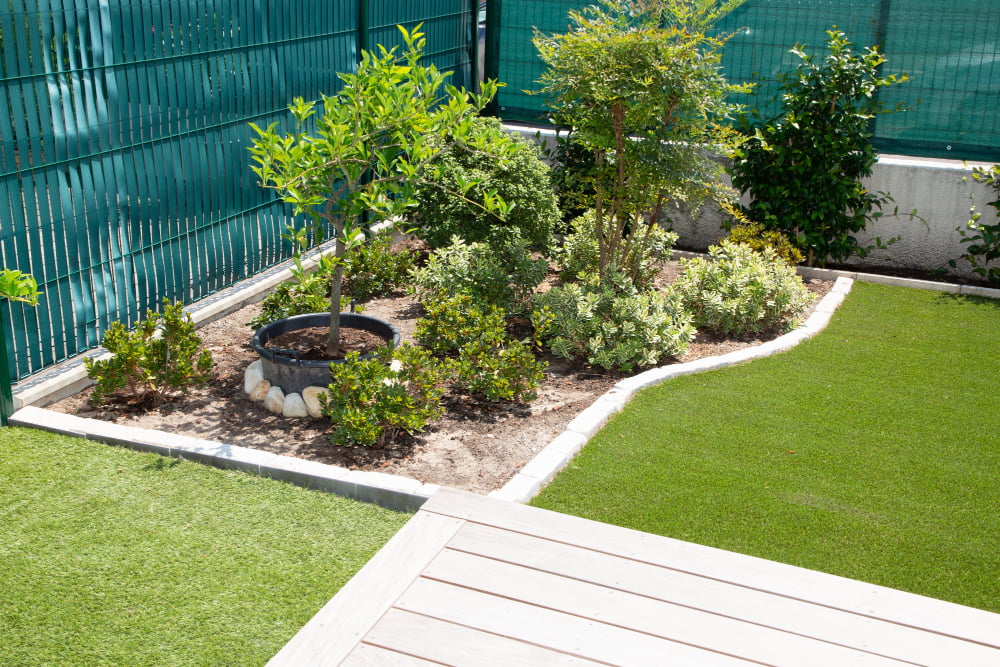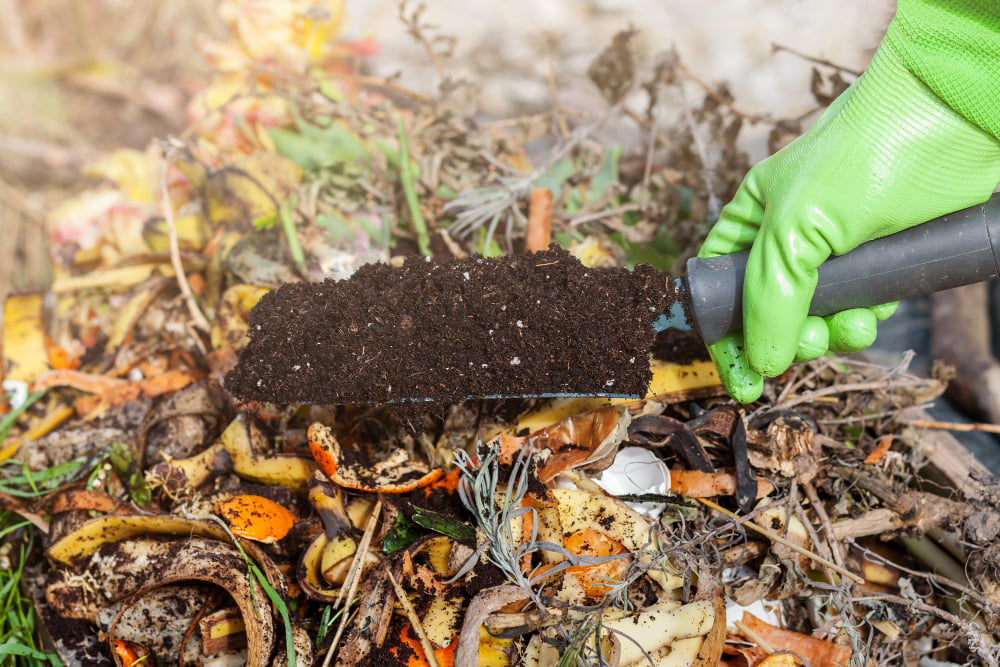Last updated on
Gardening is a craft as old as time, blending art, science, and patience into a verdant tapestry of nature’s finest displays. For both the novice and the seasoned green thumb, expert advice can turn a simple patch of earth into a flourishing retreat.
From understanding the subtleties of soil composition to mastering the timing of planting seasons, only those with years of experience can truly impart the wisdom needed to elevate your gardening game. Let’s delve into the secrets that only gardening experts can provide, ensuring that every seed planted holds the promise of growth and vitality.
Know Your Zone

Discover what plants thrive in your climate by understanding your USDA Hardiness Zone. This fundamental knowledge can determine the success or failure of your garden by aligning your plant choices with your area’s temperature range.
By knowing your zone, you can select plants that are better adapted to the specific conditions of your region, ensuring optimal growth and resilience. Consider researching local nurseries or gardening resources to learn more about the specific plant varieties that flourish in your zone. This additional information will help you make informed decisions and create a garden that thrives throughout the seasons.
Soil Is the Soul of Your Garden
Expert gardeners swear by soil testing, a valuable tool that provides detailed insights into the composition of your soil. The results can guide you on the appropriate nutrients and pH adjustments needed to create an ideal growing environment for your plants
Additionally, feeding your soil with organic compost not only improves its texture and fertility but also promotes vital microbial activity that supports healthy plant growth. Taking care of your soil ensures that it remains a thriving ecosystem that nurtures and sustains your garden.
Consider exploring various composting techniques and learning about the different types of organic matter you can incorporate into your soil to enhance its richness and diversity. With well-nourished soil, your garden will flourish with vibrant, healthy plants that bring joy and beauty to your outdoor space.
Master the Art of Composting

Effective composting can nourish your plants and reduce waste. Learn to balance green and brown materials in your compost pile to create rich, life-giving soil. Green materials such as vegetable scraps and grass clippings provide nitrogen, while brown materials like dried leaves and twigs contribute carbon.
It’s important to manage your compost pile by regularly turning it and maintaining the right moisture level to facilitate decomposition. By mastering the art of composting, you can transform organic waste into a valuable resource that enriches your garden and supports a sustainable approach to gardening.
Water Wisely
Conserving water and ensuring your plants receive the right amount is essential, which is why experts often tout the benefits of strategic watering. Here are some tips for watering wisely:
- Water at the Right Time: Early morning is ideal, as it reduces evaporation and allows water to soak deeply into the soil, reaching the roots effectively.
- Utilize Drip Irrigation: This system delivers water directly to the base of the plant, which minimizes waste and prevents the spread of plant diseases.
- Implement Mulching: A layer of mulch around your plants can help retain moisture in the soil, reducing the frequency of watering needed.
- Choose the Right Plants: Opt for drought-resistant varieties if you live in a water-scarce region.
By following these practices, you can create a more water-efficient garden that is as environmentally friendly as it is beautiful.
Consider Professional Gardening Services
While developing a green thumb is a deeply rewarding experience, there are times when calling in professional gardening services can be invaluable. If you are a Perth resident, a seasoned Gardener in Perth can provide the expertise to help your garden flourish whether you’re dealing with stubborn pests, seeking landscape design advice, or requiring regular maintenance.
Experts can provide specialized care and maintenance that might be beyond the scope of the average hobbyist, such as diagnosing and treating plant diseases, undertaking larger landscaping projects, and providing advice on garden design. They bring a wealth of knowledge and experience, ensuring that your garden reaches its full potential.
Whether you’re looking for occasional assistance or regular maintenance, professional services can help to take the hard work out of gardening, allowing you to enjoy the beauty of your outdoor space without the stress.
Mulching Magic
Mulching is a gardening practice that offers numerous benefits. By applying a layer of organic or inorganic material to the soil surface, mulch helps conserve water by reducing evaporation and preventing weed growth. Additionally, it acts as a protective barrier, shielding the soil from extreme temperatures and erosion.
This simple step can make a significant difference in the overall health and vitality of your plants, transforming struggling ones into thriving ones. To ensure optimal results, experts recommend using the right type of mulch and applying it at the correct depth, tailored to the specific needs of your garden.
Prune for Perfection
Pruning plays a vital role in maintaining the health and aesthetics of your plants. It goes beyond arbitrary cutting; it’s about understanding what, when, and how to trim. Proper pruning techniques promote optimal growth, enhance the plant’s shape, and encourage the development of strong branches.
On the other hand, improper pruning can lead to disease, poor growth, and an unsightly appearance. To master the art of pruning, seek guidance from experts who can provide valuable insights on the best practices for different plant species.
Timing Is Everything
Experienced gardeners know that successful gardening involves strategic planning and timing. Instead of making impulsive decisions, they rely on the calendar and local climate conditions to guide their planting activities. By considering factors such as local frost dates and moon phases, gardeners can determine the ideal time to sow seeds and transplant seedlings outdoors. This knowledge ensures that plants have the best chance of thriving in their environment, maximizing their growth potential and yield.
Encourage Beneficial Fauna
A thriving garden is not just a sanctuary for plants but also a haven for beneficial insects and birds. These creatures play crucial roles in maintaining a healthy ecosystem within your garden. By promoting biodiversity and creating habitats that attract beneficial fauna, you can naturally control pests without relying on harmful chemicals.
Additionally, the presence of pollinators ensures the successful reproduction of flowering plants. Seek advice from experts on how to create an environment that encourages beneficial fauna, allowing your garden to flourish while contributing to the overall balance of nature.
Natural Pest Control
Integrated Pest Management (IPM) is an environmentally sensitive approach to controlling garden pests. It combines a variety of practices and control methods with the goal of keeping pest populations below a level that causes unacceptable damage to plants. Instead of immediately turning to chemical pesticides, IPM prioritizes natural predators and biological control agents.
It also considers cultural strategies, such as crop rotation and selecting disease-resistant plant varieties, as well as mechanical controls like traps and barriers. By following an IPM approach, you protect your garden ecosystem and reduce the reliance on potentially harmful pesticides.
Identify Before You Apply
Proper identification of pests is crucial in IPM because it ensures that control measures are effective and targeted. Misidentification can lead to unnecessary or incorrect use of treatments, which might not only be ineffective but could also harm beneficial organisms.
Monitor Regularly
Regular monitoring of your garden is essential to observe the initial signs of pest activity. Early detection means you can manage pests before they become a more serious problem.
Choose Less Harmful Options
When intervention is necessary, IPM suggests using the least harmful pest control methods first, such as physical removal of pests or the use of non-toxic substances.
Evaluate Your Control Measures
Finally, evaluate the effectiveness of the pest control measures you’ve implemented. IPM is about continuous improvement and adapting strategies based on what is most effective in your unique garden environment.
Disease Prevention
When it comes to plant diseases, prevention is always the better approach. Gardening experts strongly recommend selecting disease-resistant varieties and implementing proper sanitation techniques, such as cleaning gardening tools and removing infected plants promptly, to minimize the risk of plant diseases. By being proactive in disease prevention and taking these preventive measures, you can ensure healthier and more vibrant plants in your garden.
Succession Planting
To extend your harvest and make the most out of your garden space, consider implementing succession planting. This clever technique involves strategically staggering the planting of crops, sowing new seeds or transplanting seedlings at regular intervals, to ensure a continuous supply of fresh produce throughout the growing season.
Not only does succession planting maximize your yield, but it also helps you utilize your garden space more efficiently, allowing you to enjoy a bountiful harvest for a longer period of time.
Go Vertical
Vertical gardens are not only practical for saving space, but they are also visually stunning and offer a range of benefits. Gardening experts can provide valuable guidance on creating layered and vertical gardens that not only enhance the aesthetic appeal of your outdoor space but also promote functional growth.
By going vertical, you can maximize the use of limited space and create a captivating garden display where plants can grow upwards, cascade down, or intertwine with each other, resulting in a lush and vibrant environment that brings joy and tranquility to your surroundings. Embrace the beauty and versatility of vertical gardens to transform any space into a green oasis that will leave a lasting impression.
Nourish with the Right Fertilizers
Just like humans, plants have specific nutritional requirements. It’s crucial to tailor your fertilization practices to the unique needs of your plants. By understanding the specific nutrient requirements of different plants, gardening experts can guide you in selecting the right fertilizers, such as organic or slow-release fertilizers, to ensure optimal growth and development.
Nourishing your plants with the right fertilizers, rich in essential nutrients like nitrogen, phosphorus, and potassium, will contribute to their overall health, vigor, and productivity, resulting in flourishing and abundant plant growth.
The Power of Patience
Gardening is not just about planting and harvesting; it’s a beautiful journey of delayed gratification. An expert gardener understands that patience is the key to success, as rushing nature can often result in disappointment. Take the time to observe and appreciate the gradual growth and development of your plants.
Witness the delicate unfurling of leaves, the emergence of buds, and the eventual blossoming of vibrant flowers. Embrace the process and find joy in the anticipation of the final outcome, knowing that your patience will be rewarded with a bountiful harvest and a garden filled with nature’s wonders.
Keep a Garden Journal
One of the most valuable tools for improving your gardening practices year after year is maintaining a comprehensive garden journal. By documenting your garden’s progress, you can track the successes and failures, identify patterns, and learn from them.
Record not only the varieties of plants you have grown, but also the specific techniques you have used, the soil conditions, weather patterns, and the results you have achieved. This detailed and insightful record will serve as a valuable resource, guiding you to make informed decisions and continuously enhance your gardening skills.
Additionally, it will allow you to look back on your gardening journey with fondness and reminisce about the joys and challenges you have encountered along the way.
The journey of gardening is rich with learning, personal growth, and environmental stewardship. By embracing techniques such as composting, prudent watering, mulching, and professional services when needed, gardeners can cultivate not just a garden, but an oasis of biodiversity. Strategic pruning, timing, and encouraging beneficial fauna underscore the precision and care that go into nurturing a garden.
Integrated Pest Management and disease prevention tactics are essential to maintaining the delicate balance of nature. Moreover, the practices of succession planting, vertical gardening, and wise fertilization showcase the innovation and expertise that fuel gardening success.
Finally, the virtues of patience and reflection, exemplified by keeping a garden journal, embody the heartfelt dedication that gardening demands. Each of these components converges to form a mosaic of best practices that fortify the gardener’s knowledge and contribute to a sustainable and enchanting garden sanctuary.
Recap:



